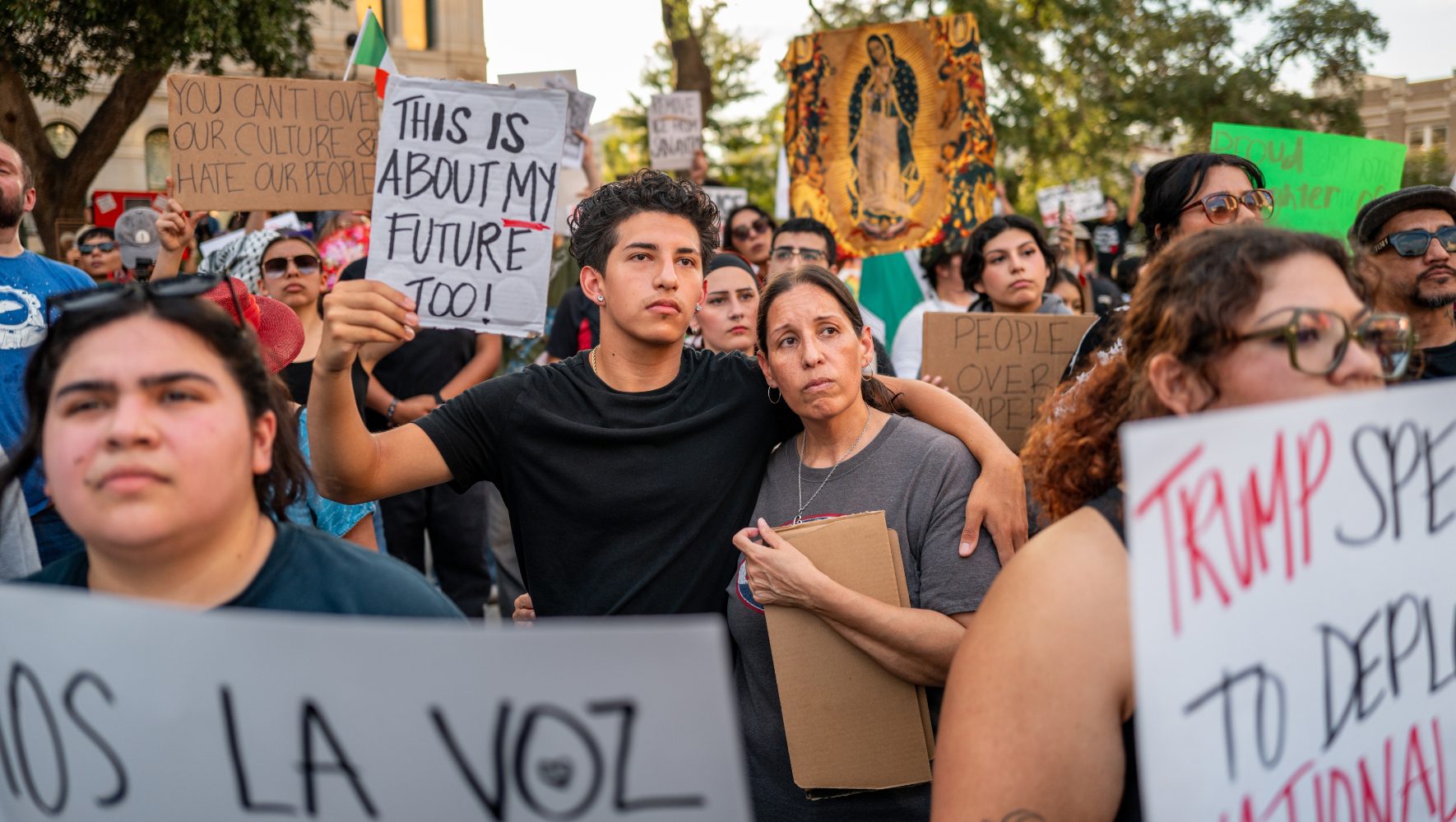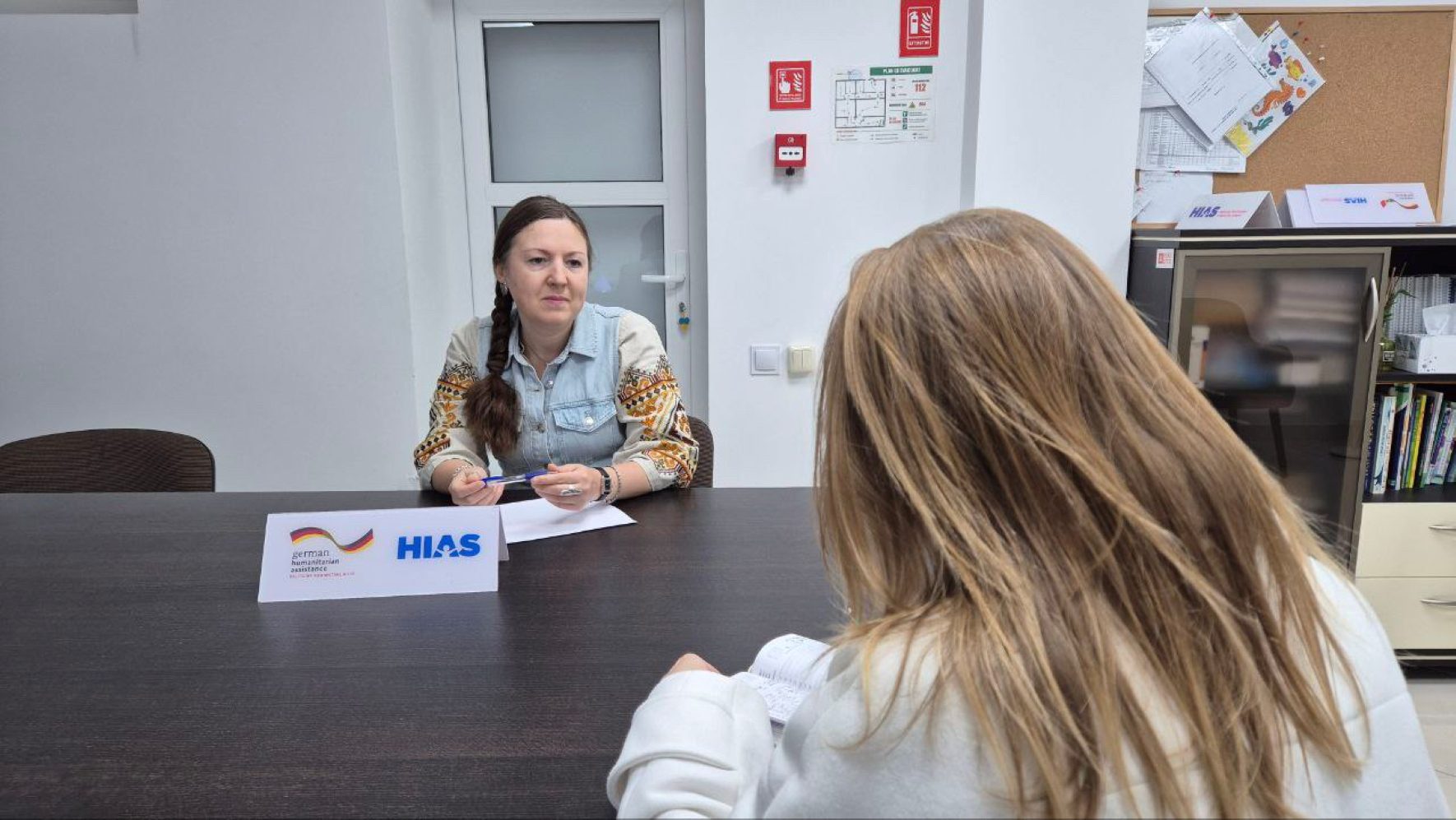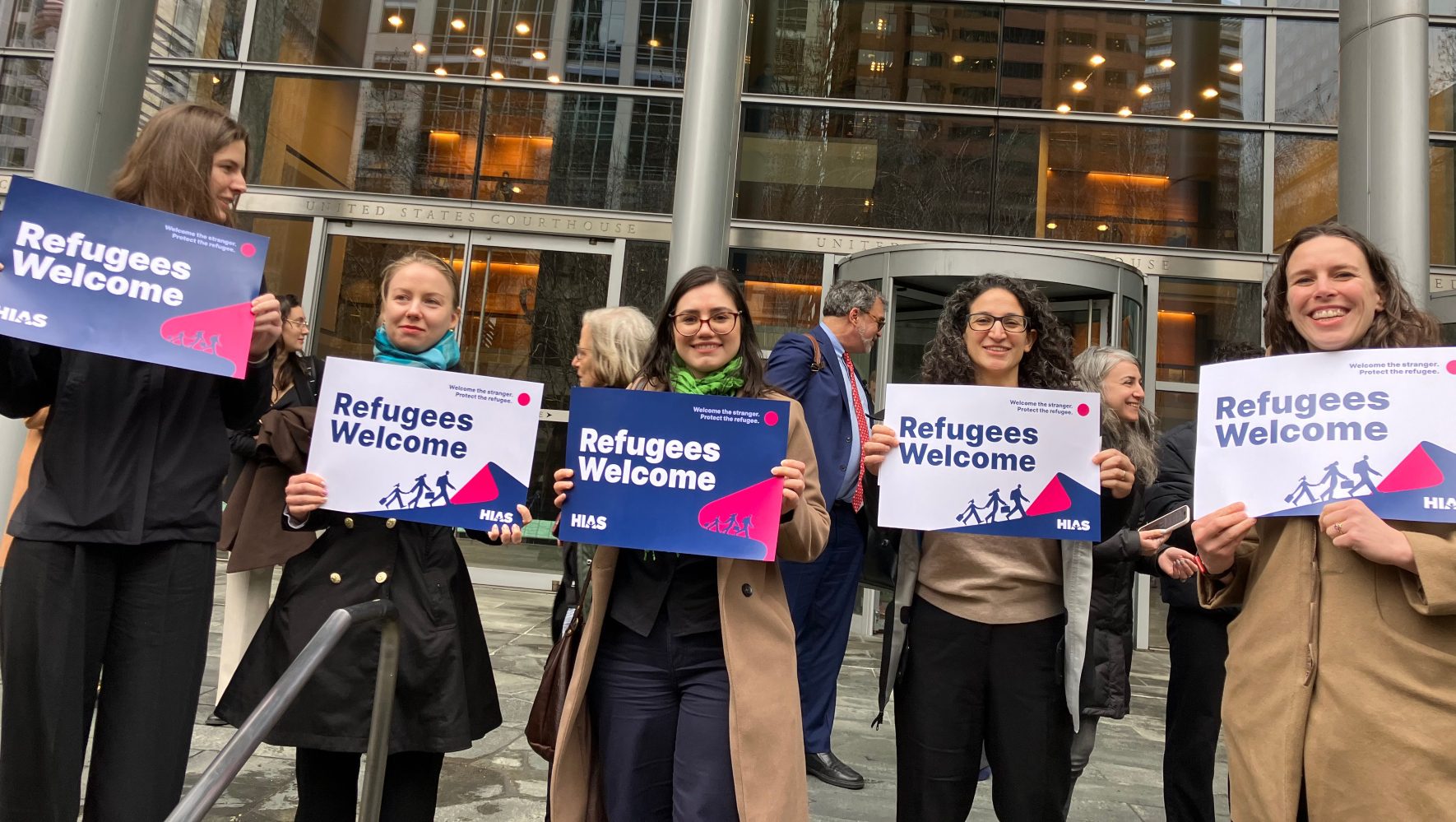Granted Asylum, Iranian Workers’ Rights Fighter Sets His Sights on the Future
Jul 31, 2014

Monsoor Osaloo withstood torture and imprisonment for fighting on behalf of workers’ rights in Iran.
HIAS is proud to announce that this month the U.S. granted asylum to Mansoor Osaloo, one of the founders of the Vahed Syndicate, a free trade union representing Tehran’s bus workers, who endured torture and the daily threat of being killed to fight for improved working conditions in Iran.
Shortly after Osaloo began working at the Tehran and Suburbs Bus Company in 1985, he became frustrated by the lack of basic amenities, such as uniforms and restrooms for workers. More concerning, employees were working under a seemingly indefinite wage freeze. He started to meet with other employees to discuss how they could campaign for better conditions. They founded Vahed but to avoid being put on a growing list of government dissidents who had been arrested and killed for being “hostile to the Islamic Republic System” they had to meet secretly.
In 2005, during an afternoon union meeting, Osaloo and several of his co-workers were violently attacked by a group of forty men. Shouting “Attack these apostates! Death to Osaloo!” the attackers beat the unionists with chair legs, chains, knives and knuckledusters.
Osaloo received a particularly severe cut across his face; he was instructed by doctors not to speak in order to recover. During the following days police officers took him in for repeated interrogation. “It was very difficult to talk [and] the anesthetic was wearing off,” Onsaloo recalls. “The officers laughed at my pain.”
When he finally recovered, Osaloo returned to the union and was elected to lead the Bus Drivers Union for the Syndicate of Workers of Tehran and Suburbs Bus Company. The company dismissed him soon after. Still, he maintained his duties at the Union and organized many more protests before authorities were able to find a judge who would sign an order to imprison him in December 2005.
“For the next seven months and twenty days, I was in solitary confinement,” Osaloo says. “My cell measured four feet by eight feet with nine-foot-high ceilings.”
For six years Osaloo moved in and out of prison, where he endured torture, violent attacks from other prisoners, and separation from his family. In the face of this, Osaloo continued to campaign for justice and began to garner recognition from the international media. When not in prison, he spoke at conferences in London and Brussels, participated in radio interviews in Iran, and filed a lawsuit against the prison for the corrupt dealings of its prison guards.
Mounting pressure from the International Labor Organization led to Osaloo’s release from prison on a medical furlough in 2011. Fearing that he’d be arrested and imprisoned again at any moment, Osaloo and his wife fled to Turkey, where he applied to UNHCR for recognition as a refugee. He then came to the U.S., where HIAS immediately began working on his application for asylum. On Monday, July 14, 2014 Osaloo won his case.
Even from afar, Osaloo maintains his activist leadership in the union and continues to fight ardently for worker’s rights in his home country. “If I were to return to Iran today, I know that I would be arrested and imprisoned very quickly,” Osaloo says. “My continued, highly public advocacy on behalf of labor rights would be considered by the Iranian government to constitute both ‘propaganda against the regime’ and a ‘crime against national security.’ For this, there can be no less punishment than long-term imprisonment and torture, which I know would ultimately cause my death.”



